Wago Ryoichi’s Poetics of Catastrophe
translated and introduced by Ayako Takahashi and Judy Halebsky
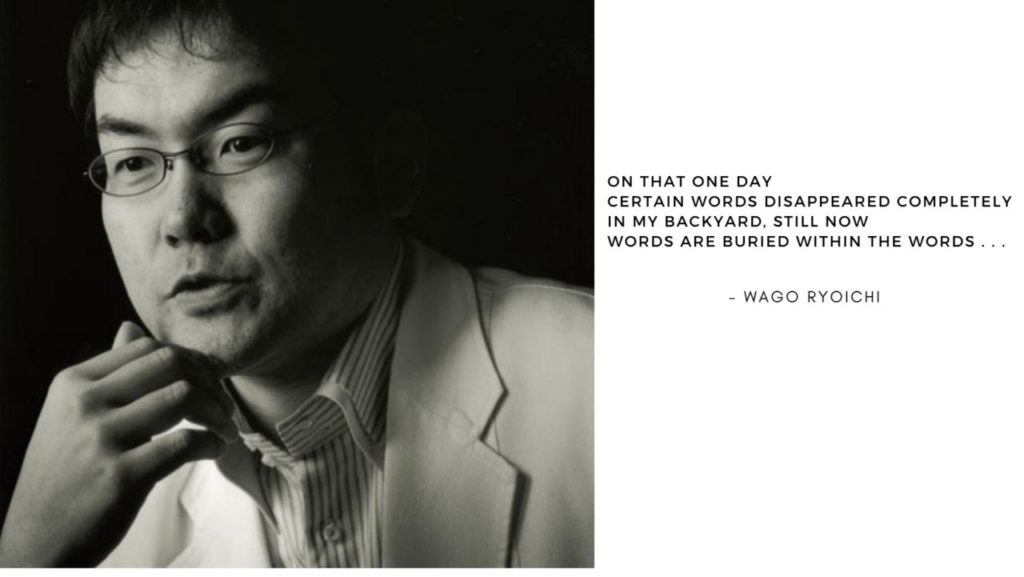
On March 11, 2011, the Tôhoku region of Japan was hit by a magnitude 9.0 earthquake. Poet Wago Ryoichi was in a meeting at the high school where he teaches Japanese literature in Fukushima City. The shaking lasted for almost two minutes and was followed by days of aftershocks. Wago rushed to check on his elderly parents and to find his wife and eleven-year-old son. The earthquake set off a tsunami that devastated low lying cities and small towns in coastal areas and took thousands of lives. It swamped the Daiichi nuclear power plant and soon radiation was contaminating the region and the sea water. His wife and son evacuated to the next prefecture but his parents refused to leave. Against the pleas of family and friends, Wago stayed in Fukushima City. On March 15, isolated and alone in his apartment, Wago started a Twitter feed to document the catastrophe. These tweets grew into a long poem that bears witness to the trauma and devastation of nuclear contamination. These tweets were later compiled in a book titled, Pebbles of Poetry (2011). Over time, his work has grown into a nuanced ecopoetics that voices the urgency of ecological disaster and often speaks from the point of view of contaminated land and abandoned animals in areas surrounding the power station. The poems reveal a dedication to his hometown through an interconnected sense of place. They mourn the destruction of a thriving community and a once healthy ecosystem. They witness efforts to decontaminate the soil and envision possibilities of transformation through ecological restoration and a growing environmental consciousness. He has published numerous books of poetry including: Running into Poetry (2011), Spring Again (2012), Decommission Poetry (2013) and QQQ (2018). His work is widely celebrated in Japan and around the world. A number of his poems have been set to music and multiple choirs sing his poems as songs.
Blown by the Wind
on that one day
certain words disappeared completely
in my backyard, still now
words are buried within the words
soil is buried within the soil
from word to words, from dirt to dirt
to the power lines, I mutter
no one how knows how to dig dirt out of dirt
blown as they are by the wind
blown as they have been by the wind
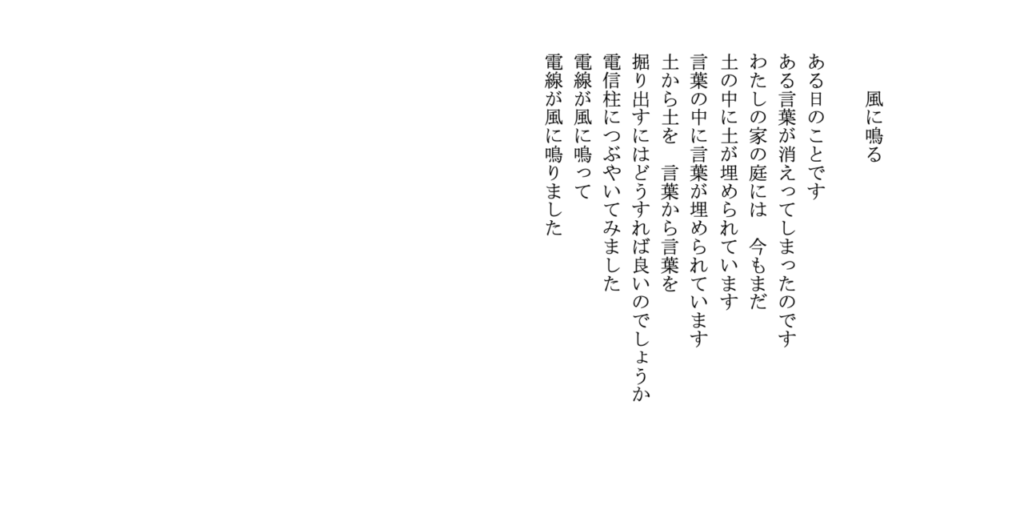
Remembering Spring: Fukushima Disaster Notes
Evacuation
March 15, Fukushima City
why don’t we evacuate together?
he called to ask
I thought about it over and over
it’s so hard to leave
even though later
I second guess myself
another close friend calls,
I’ve already rented some rooms,
far away from the coast
hurry, come
I hang up
what should I do?
my phone keeps ringing
still we are getting huge aftershocks
should I evacuate?
he calls again from a far way city
nothing has changed here
come anytime,
we’re waiting for you
I hang up
from Japan to Japan
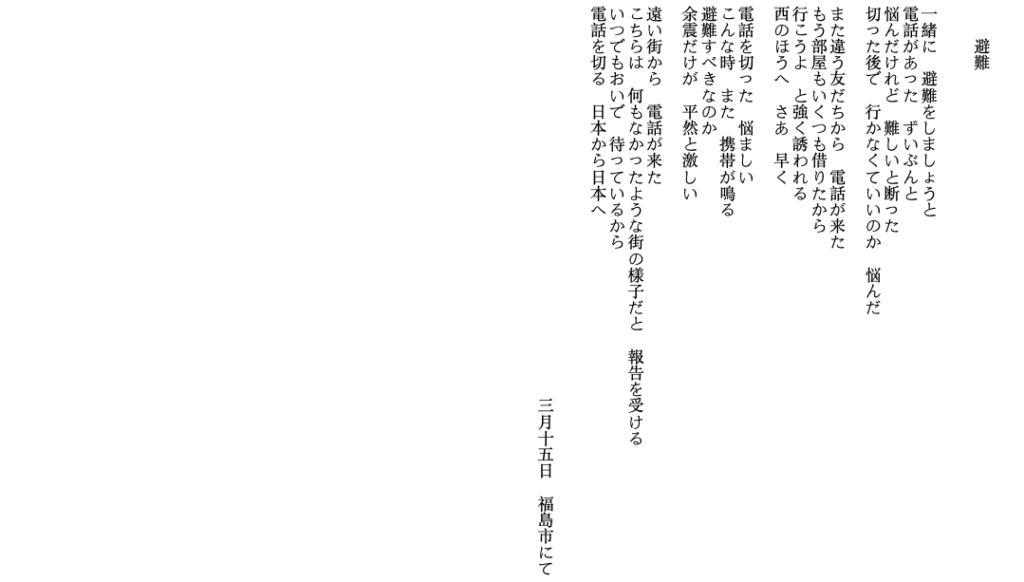

Suffering
December 10th, 2011 Fukushima City
our skin is torn,
worn thin
in the harsh mid-winter
decontaminated—
our bark stripped
coming up from who knows where
a new skin
exposed
we are left in this cold wind
could you try to feel the ache?
I want you to know what we’ve lost
a whole summer harvest of fruit
dumped along the shore
and left to decompose
we can only bear witness
tree spirits bleeding
tears falling, we are standing
the trees
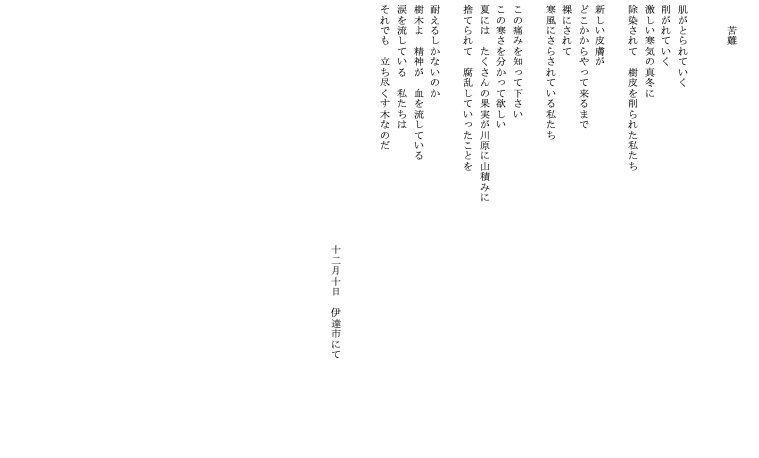
Screening
Written November 26th, 2011 while wearing a protective suit in order to walk around the town of Namie, which is within 20 km of the failed nuclear power station. (This translation is of excerpted sections from a longer poem.)
*
walking within 20 km of the power station
I was living in an abandoned country
rushing to get to the train station
even though I waited a long time
no train was coming
the abandoned and I are watching the time
confused. When a train does finally come
I think, well, where should I go?
the abandoned and I are look at each other
we’re already too late
what time is it?
rusted rail lines, birds flying
across the way, a house
with the windows left open
no one anywhere
*
walking within 20 km of the power station
even in silence
there’s a sound
something like stillness
even in sadness
there’s something beyond sadness
something like grief
even in this abandoned town
there’s people here
called no one
even in ordinary life
there are lives
they say abandoned
*
walking within 20 km of the power station
off the coast, in the Ukedo sea
we can see the tall chimney of the power station
workers there are risking their lives, but here
it’s very calm
in the mouth of the river
we can see the shadows of fish
we built an abandoned country
the salmon are coming upstream to spawn
we can’t stop their fate
on the coast just after the meltdown
people were ordered to evacuate
those that had drowned were abandoned
we weren’t even allowed to try to gather their remains
we can’t stop their fate
near our ordinary quarrels,
there’s an inscrutable stillness
a dreadful, mysterious silence
though we listen carefully, we can’t hear
*
coming back from within 20 km of the power station
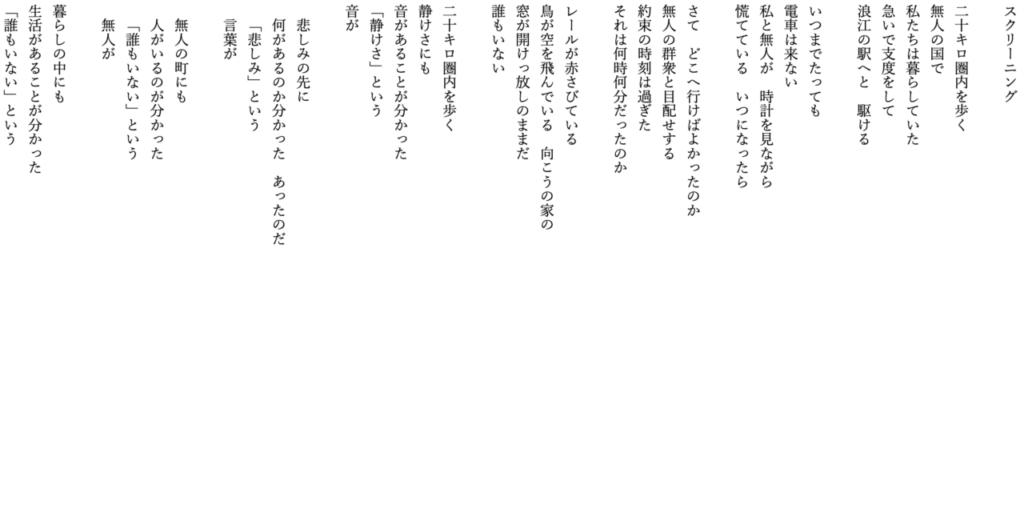
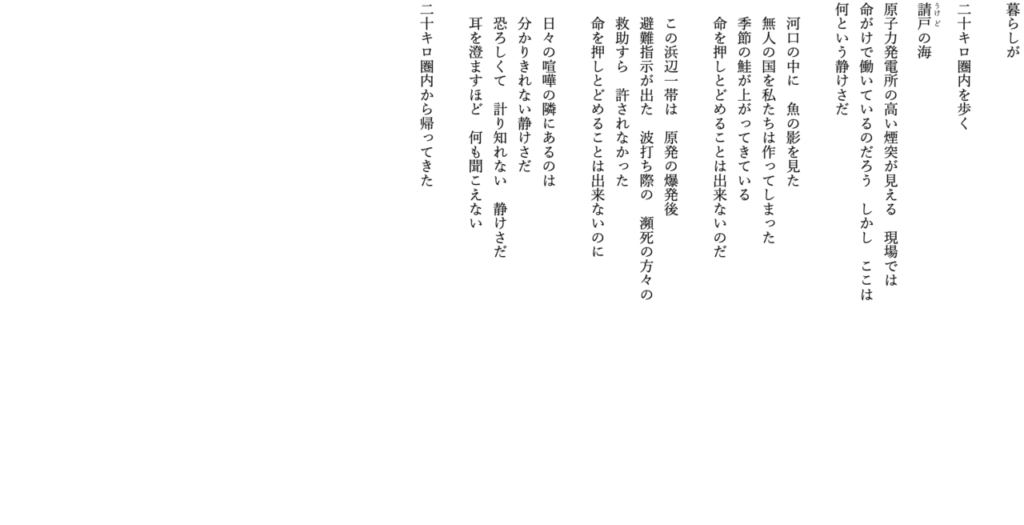
12 Plastic Bottles
Our drinking water comes from a dam in the mountains
since the meltdown, the radioactive material has settled to the bottom
and is not supposed to mix with the water on top
It’s safe, the officials tell us again
people have their doubts
it’s best to avoid a large-scale decontamination, they say,
which would stir up the dam and call up the contaminants
An old couple, evacuated to a small apartment,
want to spend their last years in their house
but they worry about the water
Permitted to return home they do not use the water
but travel to the kitchen sink
on the third floor
up and down three flights of stairs
it’s hard for them
they fill 2-liter bottles
12 bottles for drinking
for washing face and hands, for cooking rice
after a day or two, the bottles are empty
and they travel back to the facet
40 km away
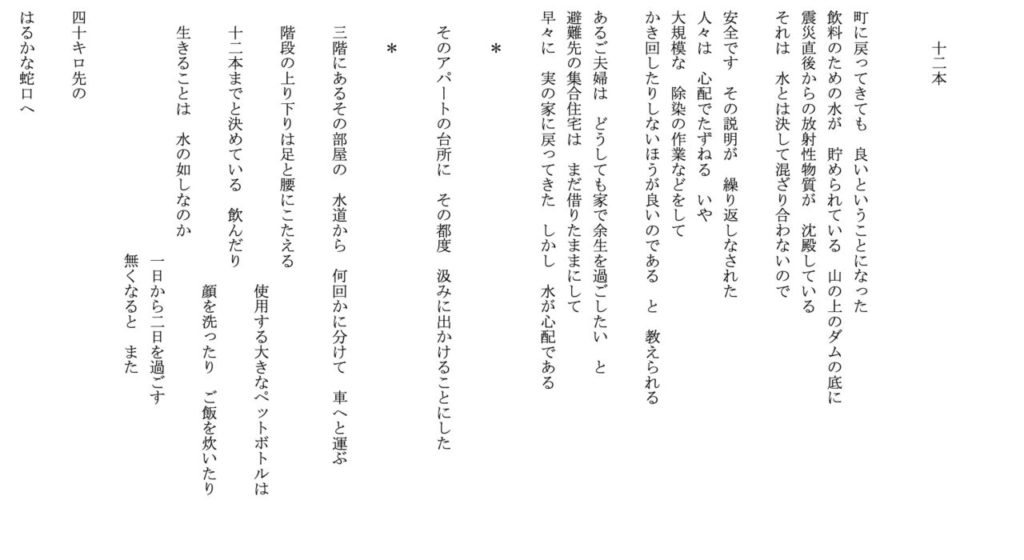
Q Q Q
Starving cow, do you walk slowly?
Starving cow, do you walk with your feet firmly on the ground?
Starving cow, do you walk over ordinary grass?
First with the right foot, then with the right foot, then with the right?
Is there something you want to know?
What is the meaning of eating grass?
Wind and dirt and sun, where are you going?
Do you think you’ll follow them?
What does it mean to eat this living grass?
From the grass, will your belly learn this geography?
What do you mean by bringing up your shadow?
What do you mean letting the grasshopper bring you happiness?
Do those endless six bare feet search for a drunken finish line?
When have become a bright green long horned grasshopper?
Does the tricycle your brother abandoned on the street fall over?
Starving cow, are you growing a mustache only on your shadow?
Will you wonder the streets of Pisa someday?
Will you ask these black cows about it?
What does it mean to spend life chewing and chewing?
What does it mean to slowly grow horns?
First with the right foot, then with the right foot, then with the right?
Why continue standing here in the dirt while wasting away?
Can the cow’s inner intense calm keep expanding?
Blown over for now reason?
What does it mean, the electric wires buzzing?
Does a bird, speckled with white, pick up mint leaves?
In the aching wooden cows, what future do you see?
What do you mean the rain puddles in your head reflect a blue sky?
Oh, do the shadows of cows fall in a line?
Here on the ground are their black shapes standing together?
Does the wind walk?
What of the tractor quietly abandoned?
Does it carry ragged grasses?
To the abandoned farm?
Did only one bird feather fall?
Can a cloud’s ear hear it?
First with the right foot, then with the right foot, then with the right?
In the whole world is there any place that doesn’t need a power supply?
First with the left foot, then with the left foot, then with the left?
Must we use the earth as a power supply?
First with the right foot, then with the right foot, then with the hand?
Are the voices over our heads murmuring along with the voices over our heads?
Am I not allowed to be myself?
Because compromise appears as a thunderstorm?
Hiding under a rock, the lizard’s gemstone eyes?
Can you see the piles of thrown away ladders and gloves?
Does the eagle’s shadow shoo away the baker’s ghost?
The cow’s eyes swollen from crying?
The rough months burned down as though worn by sandpaper?
Like a rough season filed down?
Precious water sleeting down from the cow’s eyes?
Footprints through the salty mud drinking back up to the cow’s eyes?
For white? For red?
For blue? For orange?
For light green? For peach?
The black of betrayal in the cow’s eyes
Do they live fast? Do they burn through this life?
Is the universe hidden inside a small black candy in the cow’s eye, wet and glimmering?
These eyes?
Within the saliva, is the saliva damp?
Within the hoof, is the hoof disappearing?
When a cow steps on its shadow, do its legs sink into the earth?
Slowing gaining momentum, yet incredibly sluggishly, the cow is eating a cloud?
Ever so slightly, does the cow scratch the sand, kick at the ground, and hush the rain?
First with the left & right feet, then with the left& right feet, and then, not even trying?
Does the abandoned cow, still today, believe in natural beauty?
Who is thinking about the abandoned cow?
Eating two or three bites, jaw slowly grinding
Underneath the straw hat, are horns moving at all?
Ah, since that day, is anyone thinking of us?
Cows left here to wonder aimlessly?
Is no one going to raise us?
Is the rain coming?
Legs sprouting out of ears, sprouting out of the rump, sprouting out of forearms?
Legs sprouting out of the liver, the large intestine, the spleen?
Legs sprouting out of the sky, out of valley meadows, out of the clock tower?
Legs sprouting out of Siberia, out of the Straits of Dover, out of the Yellow River?
Legs sprouting out of legs, sprouting out of legs, sprouting out of legs?
Legs sprouting out out sprouting out out sprouting out out ?
Legs sprouting out of legs out of legs out of legs?
Legs out of sprouting out of sprouting out of sprouting?
Take a look?
Are we just this herd?
Are we clinging to this depleted soil?
Are we just chewing our cud?
Are we becoming the landscape?
Are we becoming a question?
In the shape of a cow?
A big ranch?
Politely?
Trying to answer?
While starving?
This?
What is it about?
What does it mean to speak gently?
What about having two strong hands?
What about having two solemn horns?
What about being honest but drooling?
Does the starving cow know how to stomp slowly?
Does that starving cow walk on ordinary grass?
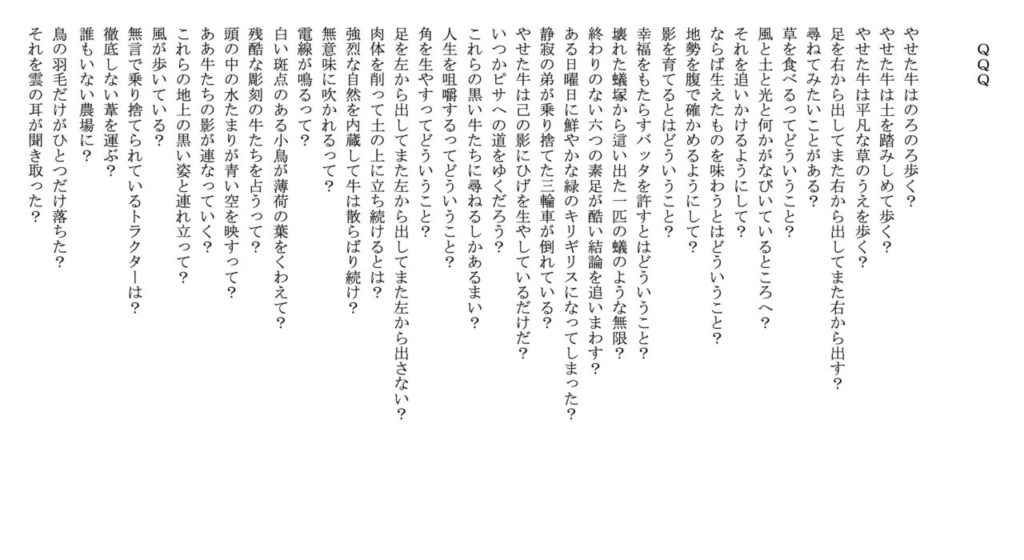
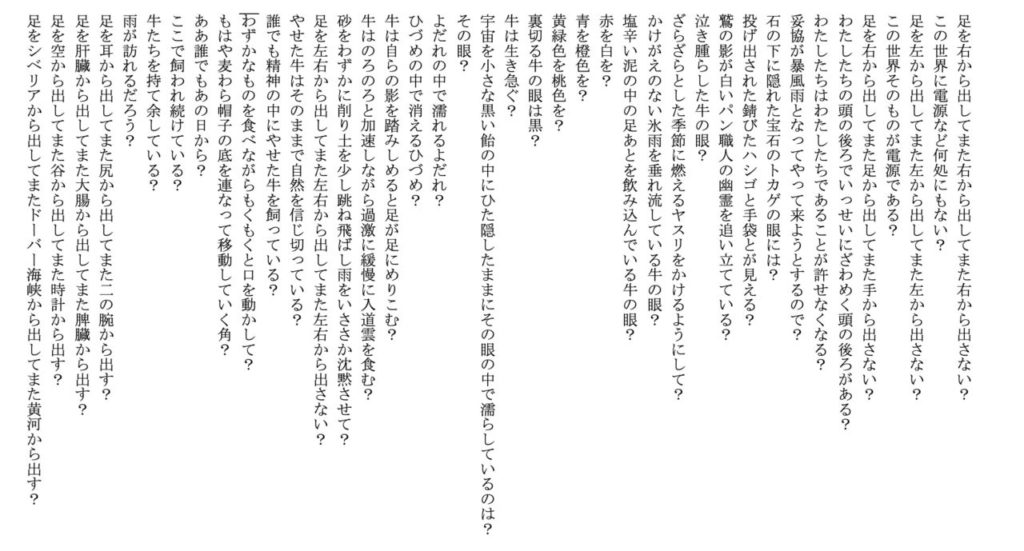
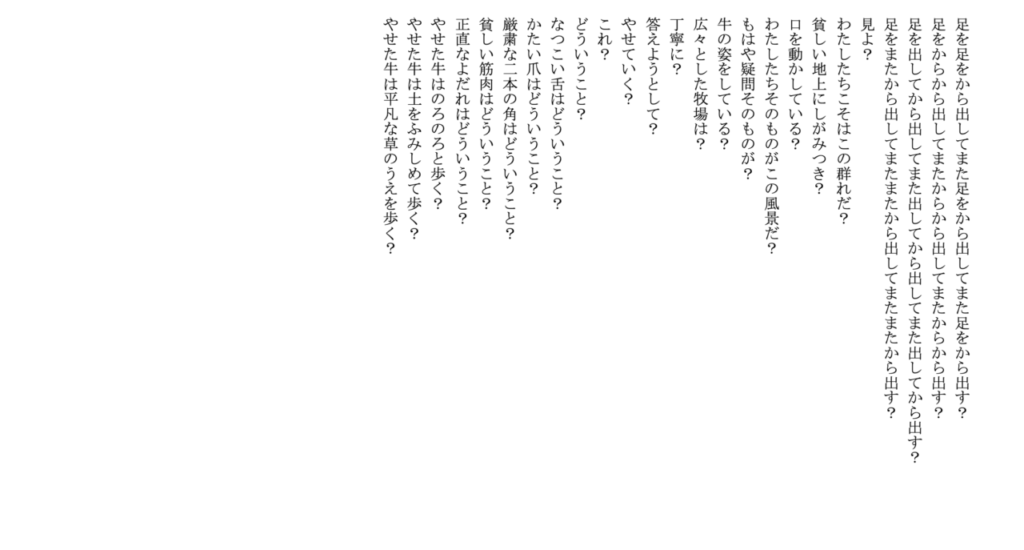
—
Wago Ryoichi is a poet and high school Japanese literature teacher from Fukushima city, Japan. In 2017, the French translation of his book, Pebbles of Poetry, won the Nunc Magazine award for best foreign-language poetry collection. Since March 2011, his writing has focused on the ecological devastation of the areas affected by the Tohoku earthquake, tsunami and the nuclear meltdown of the Fukushima Daiichi power station. His poem Abandoned Fukushima is sung by choirs across Japan as a prayer for hope and renewal.
Ayako Takahashi and Judy Halebsky work collaboratively to translate poetry between English and Japanese. Ayako Takahashi is a scholar and translator teaching at University of Hyogo in Japan. Her most recent publication is a book of scholarship titled, Reading Gary Snyder (Shichosha Press, 2018). She has published translations of many American poets such as Jane Hirshfield, Anne Waldman, and Joanne Kyger, among others (Anthology of Contemporary American Women Poets, Shichosha 2012). Judy Halebsky is a poet and scholar. She is the author of Spring and a Thousand Years (Unabridged) (University of Arkansas Press, 2020) Tree Line (New Issues 2014) and Sky=Empty, winner of the New Issue Prize (New Issues, 2010). She has also published articles on cultural translation and noh theatre. She is an associate professor at Dominican University of California and the director of the MFA program. Ayako and Judy have been working together for a number of years and have previously published articles in Japan on the development of English language haiku.
